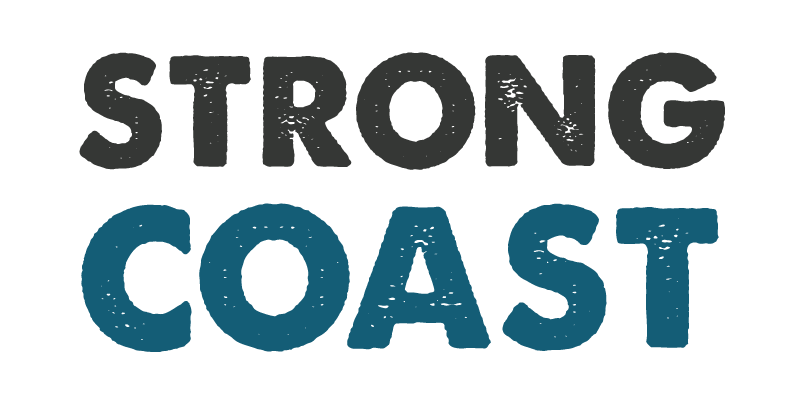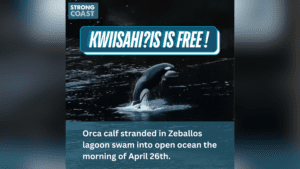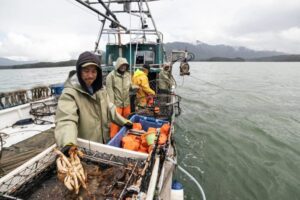
“We haven’t removed his livelihood, but we have hopefully removed the opportunity for him to get right close to the border and then continue to creep over into US waters.”
DFO representative Bev McGuire-Funk
Punishment for four crab poachers has been handed out to the tune of $287,000 in fines, the seizing of traps, and a two-week fishing ban.
This case highlights a significant issue in marine conservation and resource management. This issue is poaching. The hefty fine handed to these four crab poachers reflects the government’s commitment to enforcing the Fisheries Act and protecting marine ecosystems from unsustainable practices and threats. The threat of poaching, including crab poaching, is real, as poaching interferes with sustainable fisheries management and can lead to unsustainable declines in different commercial species.

It does not come as a surprise to coastal residents that BC is dealing with dwindling fish stocks, which makes enforcement crucial. Enforcement, including catching and punishing poachers, protects our coastal biodiversity and ensures the long-term sustainability of fisheries. The case in Boundary Bay serves as a reminder of the need for continued vigilance and strict adherence to regulations to safeguard our marine ecosystems, the economic engine of coastal communities.

However, it also serves as a reminder that current fisheries management is ill-equipped to properly deal with poachers. There are simply not enough DFO officers in our coastal waters to deal with the amount of poaching that is taking place. Therefore, while at Strong Coast, we see the fines handed out in this case as good news, this specific incident is only a drop in the ocean, as most poaching in our waters goes undetected.
How can we change this? We can change this by ensuring the Great Bear Sea Marine Protected Area Network becomes a reality. The increased enforcement that comes with marine protected areas can help reduce incidents of poaching and bring more poachers to justice.
Read this Global News article to learn more about this crab-poaching incident.




